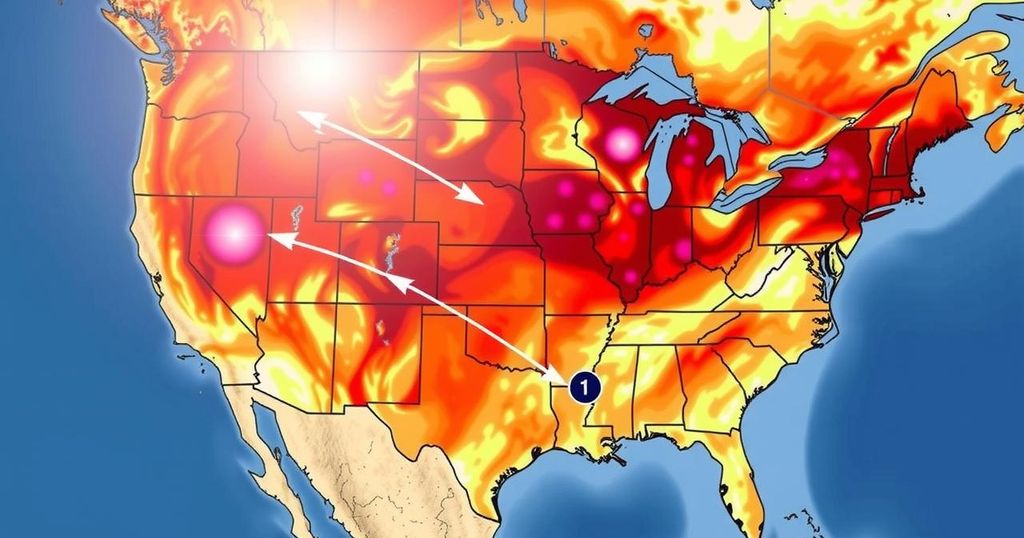The World Meteorological Organization (WMO) has reported that 2024 is projected to be the warmest year on record, driven by an increase in greenhouse gases due to human activities. The upcoming reports will provide updated global temperature data, while current climate actions emphasize the urgency of addressing extreme weather events exacerbated by climate change. Notable collaboration among nations and organizations is underway to tackle the risks of rising temperatures.
According to the World Meteorological Organization (WMO), the year 2024 is anticipated to become the warmest year on record, concluding a decade marked by extraordinary global heat primarily driven by human actions. The WMO’s latest report highlights the continuing rise in greenhouse gas concentrations, which contribute to escalating temperatures and future climate challenges. The comprehensive global temperature data for 2024 will be unveiled in January, with the full State of the Global Climate report scheduled for March 2025.
WMO Secretary-General Celeste Saulo emphasized the significance of even minor temperature increases, stating, “Every fraction of a degree of warming matters, and increases climate extremes, impacts and risks.” Recent weather patterns have exhibited an alarming escalation in extreme events, resulting in unprecedented rainfall, flooding, and heatwaves. The devastating effects of such climate variability have been felt globally, particularly during intense weather incidents like tropical cyclones, which have inflicted severe human and economic tolls.
As part of its mission to enhance climate adaptation efforts, the WMO is prioritizing initiatives such as “Early Warnings for All” and the Global Greenhouse Gas Watch, which aim to support climate service development. The year 2025 will see a concentrated effort on preserving the cryosphere, coinciding with the International Year of Glaciers’ Preservation, a collaboration between UNESCO and WMO.
A report by World Weather Attribution identified that climate change amplified nearly all significant weather events in 2024, resulting in over 3,700 fatalities and causing widespread displacement. Furthermore, the report indicated that climate change contributed an additional 41 days of extreme heat in 2024, adversely impacting human health across nations. The increased frequency of extreme heat underscores the necessity for enhanced global collaboration to mitigate risks associated with rising temperatures.
In response to the UN Secretary-General’s Call to Action, a specialized group of experts from various international organizations convened at WMO headquarters to develop a strategic framework aimed at addressing the burgeoning threat of extreme heat. This collaborative initiative demonstrates the global commitment to tackling climate-induced challenges effectively.
The report from the World Meteorological Organization details the ongoing impacts of climate change, particularly how human-induced factors have led to unprecedented heat levels. Understanding the link between greenhouse gas emissions and rising temperatures is crucial for comprehending the broader implications of climate change. Furthermore, it highlights the intensifying nature of extreme weather events, which have caused loss of life and displacement on an alarming scale, thereby underscoring the urgency for effective climate action.
In summary, the WMO’s assertion that 2024 will be the warmest year on record serves as a critical reminder of the accelerating impacts of climate change. The record levels of greenhouse gases and the resulting extreme weather phenomena highlight the necessity for immediate and coordinated global responses to mitigate these challenges. Continuous monitoring and adaptation efforts are essential as we navigate this climate crisis, with a spotlight on international cooperation to manage heat-related risks effectively.
Original Source: www.wam.ae






